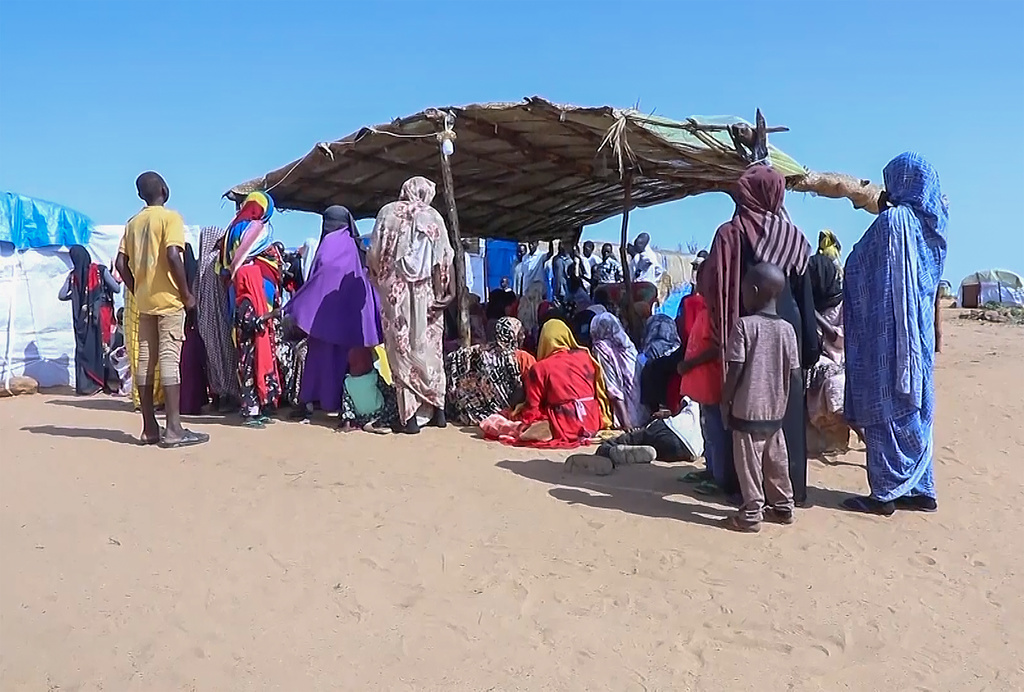ADF STAFF
Hunger in Chad typically peaks from June to August in the lean season between harvests, but this year is looking far worse because of a major influx of mouths to feed.
More than 700,000 Sudanese refugees have arrived in Chad since fighting broke out in neighboring Sudan in 2023. They add to the 600,000 people who had fled to Chad, mostly from the Darfur region, which has suffered from violent ethnic and political conflict for more than two decades.
Chadian Minister of Public Health Abdelmadjid Abderahim recently announced the launch of the country’s national emergency response plan to meet the immediate food needs of 1 million of the most vulnerable people across eight provinces.
He pleaded for help from international partners in what his country has declared is a severe humanitarian crisis affecting more than 2.5 million civilians.
“Our country is facing unprecedented food insecurity, exacerbated by multiple crises including a massive influx of refugees,” Abderahim said on Chad state TV on July 15. “The large-scale response the government is launching today with funding from the World Bank, the European Commission, the people of Japan and USAID, will enable WFP [World Food Program] to distribute vital assistance to our citizens in urgent need.”
Chad also is home to tens of thousands of civilians who fled violence between rebels and government troops in the Central African Republic and has its own problems with displacement, as several hundred thousand civilians have fled violent extremist groups Boko Haram and the Islamic State West Africa Province in the Lake Chad area.
Earlier in July, the WFP, the World Bank, the United States, the European Commission and Japan announced contributions to help Chad by distributing food, seeds and cash transfers to families most exposed to hunger.
These countries and organizations said their emergency response program will target the hardest-hit provinces of Ennedi East, Wadi Fira, Ouaddaï, Sila, Logone Oriental, Lac, Kanem and Bahr El Ghazal on the border with Sudan.
Facilities, services, supplies and patience are running out in the overcrowded refugee camps of eastern Chad, worsening a dire humanitarian crisis caused by the spillover from the war in Sudan. Surrounded by a sea of white tents erected by relief organizations, journalist Ahmed Idris reported from the town of Adre, just a few hundred meters from the Chad-Sudan border.
“As the number of refugees grows, tension is rising between them and host communities over scarce resources,” Al Jazeera’s correspondent said in a July 25 video. “Competition for food and water has pushed the prices of goods beyond the reach of most people here, forcing Chadians, many of whom depended on food aid, to rely on handouts.”
Basic needs such as food, water and sanitary products are in short supply.
“We lack resources to continue to provide life-saving support to refugees to relocate them to other areas, where they will rebuild their life,” U.N. Refugee Agency regional representative Blaise Bokundi told Al Jazeera.
The WFP says Chad is experiencing its fifth consecutive year of severe food insecurity, as it projects 3.4 million people will be unable to meet their basic needs during the lean season.
“Our teams are on the ground and doing everything possible to meet the immediate needs of those hardest hit by this crisis,” Koffi Akakpo, WFP interim representative for Chad, said in a July 10 statement. “To mitigate the future impact of the increasingly severe and recurrent crises, WFP calls for substantial investments in sustainable solutions that strengthen long-term food security, improve agricultural productivity, support resilience to climate shocks and reinforce the purchasing power of the most vulnerable populations.”

